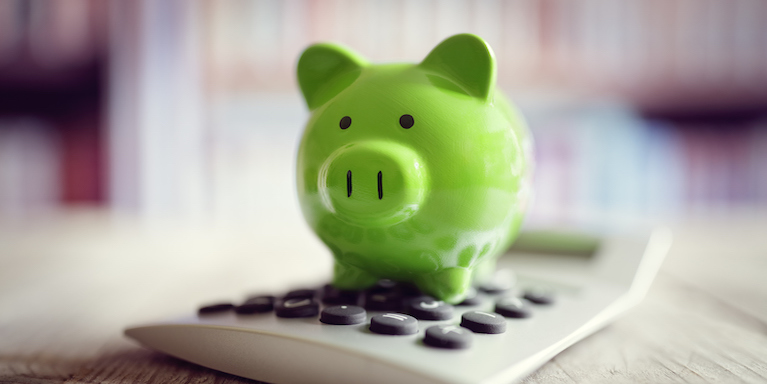Warning: Fraudsters are using our brand to target individuals. Loans 2 Go will never ask for upfront fees. If affected, please contact us & learn more here.

Pay less tax and save money with help from Loans 2 Go…
The new tax year begins on Monday 6th April. Many of us don’t give it a second thought. In fact, we tend to be more focused on January 31st, which is the latest deadline for submitting tax returns for those that need to do this: mostly the self-employed.
But there are various things that we can all do to make sure that we are not paying too much tax. Whether you are employed or self-employed, and however your tax is paid, take a quick look at our five easy money saving tips.
Everyone who pays tax is allocated a tax code by HMRC that indicates how much they can earn before having to pay tax. The code is a series of letters and numbers, and for most people it will be 1250L. This is based on the current UK tax free allowance of £12500.
You should already have received your PAYE coding notice for 2020-2021 as these are usually sent out either by post or electronically in January/February. If you do not normally receive one but are employed, then check your payslip as your code will be on there.
If your code is different from the above and you don’t understand why, then contact HMRC on 0300 200 3300 to check if there has been a mistake.
If you earn less than the current personal tax allowance of £12500 and are living with a husband, wife or civil partner who earns more than you, then you could claim the Marriage Allowance. This enables you to transfer £1250 of your personal tax allowance to your partner, which could reduce their tax by up to £250 in the tax year.
To find out more about how to do this, check out the Gov UK website.
If you are either self-employed or a private landlord, there are various business expenses that you can deduct from your income before paying tax: which means that there will be less tax to pay.
Day to day expenses for the self-employed include things such as travel, home office expenses and stationery. For landlords they include agent fees, legal fees, maintenance and repairs, and administrative costs such as phone bills, stationery and advertising.
You can also take advantage of capital allowances if you are buying larger assets for your business. For example, the Annual Investment Allowance (AIA) enables you to claim tax back for purchasing items such as vehicles or computers.
For more details on all the above, check out the Gov UK website.
Whether you are employed or self-employed, you are still allowed to make extra money without having to pay tax on it. Whether you sell items on eBay or other sites, do casual work such as babysitting or odd jobs, or make money from your property – for example by renting out your drive – you do not have to pay tax on the first £1000 profit. This is known as the Trading Allowance.
If you decide to rent out a room in your home, under the Rent a Room scheme you don’t have to pay any tax on the first £7,500 you make in rent each year. This also applies to B&B and guest house owners. For more information about the Rent a Room scheme, check out the Gov UK website.
If you have savings then make sure you are not paying tax on them. Everyone in the UK has a personal savings allowance which means that you don’t have to pay tax on the first £1000 interest from savings. Given that interest rates are so low at the moment, this probably covers most people, but there are a couple of other ways to avoid tax on savings.
The first way is to open an ISA. You are allowed to save up to £20000 per year in an ISA without paying any tax on the interest. This includes cash ISAs, stocks and shares ISAs, innovative finance ISAs and Lifetime ISAs.
The second thing to consider is Premium Bonds. You can save any amount from £25 to £50000. There is no guaranteed interest but each month you are entered into a draw in which you can win prizes between £25 and £1 million, all tax free.
If you are employed you can also view your pension as a form of long-term saving. You should consider paying more into your pension if you can afford to do so. This has a double benefit. As well as increasing your pension pot, this will reduce the tax you pay.
This is because most workplace pensions deduct your pension contributions from your salary before you pay tax. So the more money you are paying into your pension, the more there is to deduct from your overall salary before you are taxed on it.
Not only do you pay more into your pension, but you also reduce the amount of tax you pay.
The best way to go about this is firstly to speak to your employer to see if they can set up additional pension payments for you. If not, then they should be able to give you details of the pension provider so that you can contact them and set payments up yourself.
We hope that the above tips will help you to save money on the amount of tax you are paying next year.
Check back here soon for more lifestyle and money saving tips from Loans 2 Go.